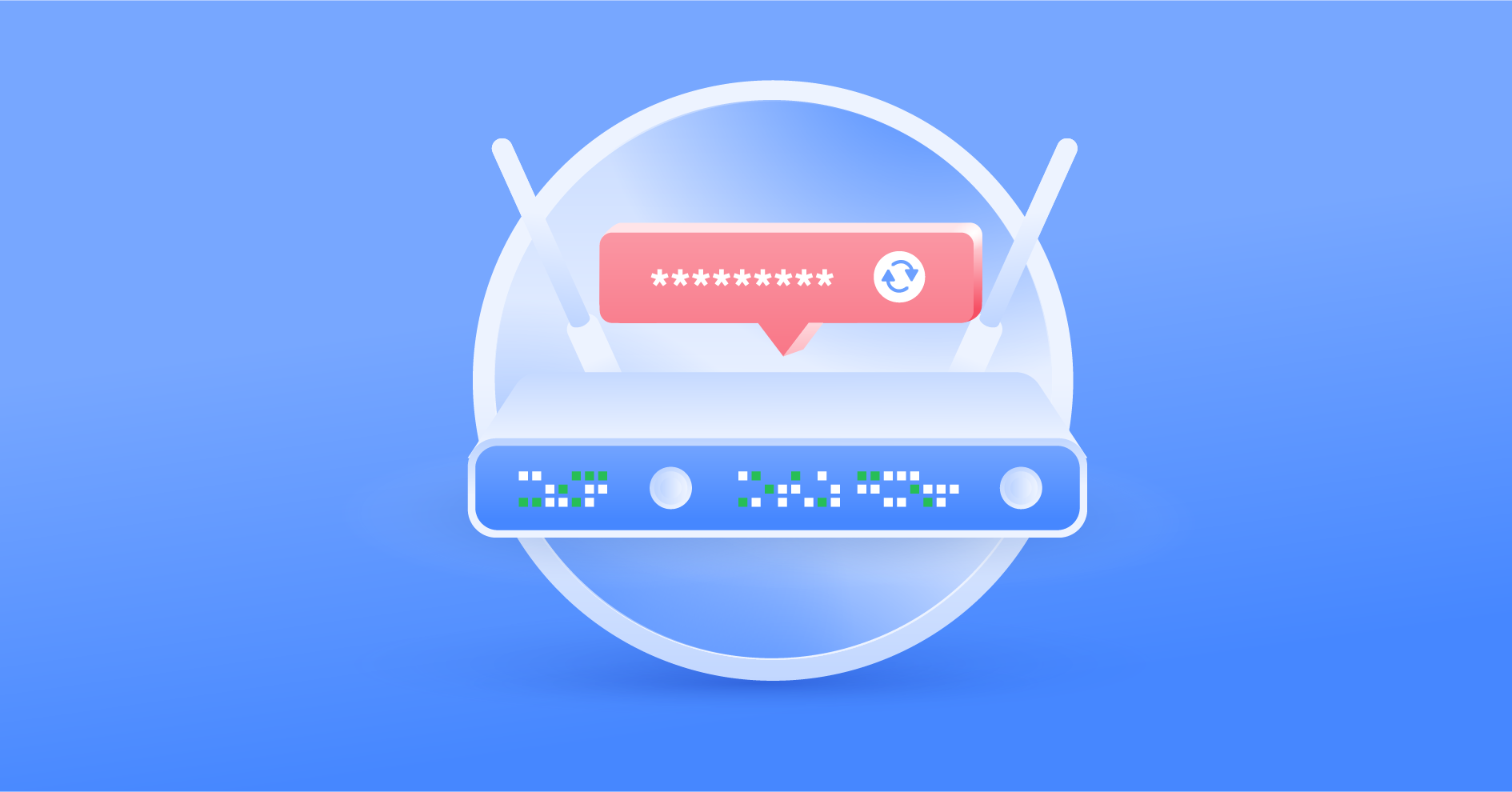Why is my internet so slow? 10 reasons why, and how to fix it
Have you ever been drumming your fingers while websites load or a video buffers? You have all probably wondered why your internet is so slow at some point in your browsing journey. We’re here to help you unravel the 10 reasons why your internet is slow and, more importantly, what you can do to fix it.
Contents
10 reasons why is your internet connection so slow
A slow internet connection may be due to a variety of reasons. It could be your inefficient router, internet service provider (ISP) bandwidth throttling, outdated devices, or even malware. While speeding up your internet connection on your computer is not always easy, there are ways to optimize it. We’ll give you 10 reasons why your internet speed might be sluggish and provide solutions.
1. Outdated or inefficient router
Usually, the age and efficiency of your router play a massive role in how fast your internet operates. Routers, like most devices, have a finite lifespan. As years pass, newer, faster wireless standards emerge. If an older router runs on an outdated standard, it can’t make the most of the speeds your ISP offers without the right tech standards.
On the other hand, just because a router is new doesn’t automatically mean it’s perfect for your needs. Some routers are designed primarily for simple tasks like browsing and emails. Others are built for more demanding tasks, like HD streaming or gaming. You will feel the lag if you’re running tasks that consume a lot of internet capacity with an unsuitable router.
Upgrading to a more current and efficient router can change the game, providing more enjoyable online experiences.
2. Network congestion
Network congestion might sound technical, but it’s pretty straightforward when you break it down. Simply put, network congestion happens when too many devices or applications are trying to use the same internet connection simultaneously.
Video calling, movie streaming, emailing, and playing video games on the same internet connection take a slice out of your internet bandwidth. If they’re all happening simultaneously, they’ll inevitably compete for resources. So, understanding the concept of network congestion and how it affects your connection speeds can make all the difference in ensuring a consistent online experience.
3. Wi-Fi signal interference
Wi-Fi is a radio signal, and just like any radio signal, it can interfere with various sources, causing a drop in the quality of your internet connections. First, your Wi-Fi signal can interfere with other Wi-Fi networks, especially in densely populated areas like apartment complexes. If multiple networks are operating on the same or nearby channels, they can interfere with each other, reducing the network connection quality.
Everyday household devices, like baby monitors or smart refrigerators, can also be sources of interference. Lastly, the layout and materials of your home can cause internet sluggishness, too. Certain building materials can weaken or block Wi-Fi signals. So, remember — the placement of your router can make a difference.
4. Background applications consuming bandwidth
Sometimes, your internet speed might be too slow when you stream, play games, or work. It can be caused by the background applications silently consuming your bandwidth. These processes run behind the scenes on your device, even when you’re not actively using them. It can be software updates, cloud storage syncing, or auto-start applications that turn on when you boot up your device.
It’s worth noting that a VPN can sometimes slow down your internet connection. The further away your device is located from the VPN server, the slower your information travels from one point to another.
5. Data cap restrictions
Sometimes, the reason why your internet connection is slow might be something called “data cap restrictions.” Usually, we are on ISP plans with a limited amount of data we can use each month. While many of these limits are pretty generous, frequent streaming, online gaming, and downloads can easily surpass the cap.
When you hit this limit, some ISPs might not immediately cut off your internet. Instead, they might throttle your speeds, meaning it will reduce your internet connection speed.
The good thing is most ISPs will usually send you a notification when you’re nearing your data cap, giving you a heads-up that you might be approaching bandwidth throttling territory. It’s essential to be aware of your monthly usage, especially if you share your network with multiple users. Also, you can always contact your ISP and upgrade your plan with a higher data allowance.
6. Malware or viruses
Malware or viruses can also have an impact on your healthy internet connection. When malware or viruses enter your device, they often operate silently in the background. Without your knowledge, they might be using your device’s resources, including its internet connection. This unauthorized usage can steal your bandwidth, leaving you less available for regular online activities and causing a sluggish or unresponsive connection.
It’s not just about reduced speeds, though. Some malicious software can redirect your internet traffic, bombard you with unwanted ads, or engage in other activities that exploit your connection.
7. Inefficient browser settings
You must be aware that specific browser settings might also slow your internet speed. All browsers come packed with features, extensions, and settings that aim to enhance our online experiences. However, these enhancements can sometimes be why your pages load slowly. Extensions, for instance, are small software pieces that add functionality to your browser. While they can be beneficial, having too many active extensions at once can exploit your resources and slow your internet speed.
Additionally, your browser stores temporary internet files, also called the cache, to speed up subsequent visits to the same site. But, over time, a large cache collects and might do more harm than good. Moreover, while cookies are essential for personalizing your web experience, an overload can lead to inefficiencies.
8. High latency
Have you ever clicked on a link and found yourself tapping your fingers, waiting for the page to respond? While many factors can contribute to this delay, one of the reasons can be latency. Latency is how long data travels from your device to the web server and back again. A lower latency means faster interactions online, while a higher latency can cause noticeable delays.
High latency can be influenced by the physical distance between you and the website’s server. For example, if you’re in Berlin trying to access a server in New York, there might be a bit more latency than accessing a nearby server. Other factors include network congestion, poor routing by the ISP, or issues with the server you’re trying to reach.
9. Outdated devices
Outdated devices might be another reason why your connection speed is sluggish. All your everyday gadgets, like laptops, smartphones, tablets, and smart TVs, are constructed with hardware and software that becomes outdated over time. As newer standards and protocols emerge, older devices might become insufficient to support them and make the most of the internet speeds.
Also, if your device’s software or firmware hasn’t been updated in a while, it may lack the necessary performance enhancements or security updates provided in newer versions.
10. Poor wiring or infrastructure
Regarding internet connectivity, we usually focus on the digital aspects like speed, data, and Wi-Fi. But let’s not forget the wiring and infrastructure. The proper function of these physical things that deliver the internet to our homes is essential for a good online experience. Poor wiring and dated infrastructure might complicate our digital adventures.
The quality and condition of cables and junction boxes are crucial for a stable internet speed and connection. If these components are damaged, corroded, or simply outdated, they can lead to interruptions or reductions in your internet speed.
How do you fix a slow internet connection?
Even though slow internet speeds are annoying and speeding it might seem like a tough nut to crack, there are a few simple ways that you can try to fix it.
- Restart your router. Sometimes, this simple solution can make a huge difference in your connection speed and resolve internet speed issues.
- Check for background apps. Make sure no unnecessary programs, like large downloads, consume your bandwidth.
- Reduce the number of connected devices. If more than one device is connected to your network, try disconnecting the unnecessary ones to speed up your internet.
- Check for malware. Ensure your devices or router isn’t infected with malware or viruses that can cause slow speeds.
- Clear cache. Clean your browser’s cache from time to time. This will help you speed up the web surfing experience.
- Use an ethernet cable. You can try using an ethernet cable instead of connecting to a wireless network to speed up your connection.
- Contact your internet provider. If the slow speeds continue, contact your internet service provider and ask about technical issues or change your plan. If the problem persists, you might want to shift to another internet provider.
By trying these tips, you can significantly improve your internet speed and enhance your online experiences.
Want to read more like this?
Get the latest news and tips from NordVPN.

